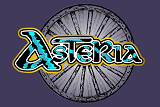I love this mud. The mechanics are great and getting better all the time. Greg and Arcades have put a ton of work into this and it shows. I am really looking forward to the growth of the player base as this mud is new and still undiscovered. If you want someone to play with just look for any character that starts with Bel.
Post a commentMud Address: asteriamud.com 1111
Web Address: http://asteriamud.com
Codebase: [Custom]
Listing Last Updated: December 05, 2018
-
Category:
-
Location:
-
Primary Language:
-
# Players Online:
-
Multi Playing:No
-
Player Killing:Restricted
-
Mud Created:May, 2016
- Supports/uses MXP
- Clans Offered
- Ansi Color
- Quests Available
- Extended Race Selection
- Custom Server Type
- Class-less System
- Out-of-band Protocol Support
- Detailed Character Creation
- Supports/uses MCCP
- Equipment Saved
- Screen-Reader Friendly
- Supports/uses MSP
- Newbie friendly
- Player Cities
- Mud is fully operational
- Roleplaying Is Encouraged
- Skill & Level-Based Training System
- Skill & Level-Based Equipment System
- Large World (8,000+ rooms)
- World is all original
- Adult-Oriented Violence

New life enters Asteria, a mystical realm of breathtaking sights and endless possibilities. At this moment, thousands step onto the soil of Allara, the largest continent in known existence. Adventurous warriors, enterprising thieves, and curious wizards disperse across the vast unseen lands, ready to stake a claim and create a legacy. Mysterious and alluring dungeons are begging to be explored, devious puzzles are waiting to be solved, and the secrets of the universe are ready to be unlocked.
As adventurers take off in search of glory, many unnamed lands await the arrival of living legends. The blank parchment awaits tales of conquest and comradery, while the heavens await souls worthy of Immortal greatness.
Join in the adventure. Create your legacy one story at a time.
Welcome to Asteria.
Mud Theme: Fantasy
1 review found, Post a review
| Raw Data | Average Data | |
|---|---|---|
| # Days Listed | 267 | |
| Last Connection Status | Connected | |
| # Days With Status | 265 | |
| Total Telnet Attempts | 885 | 3.315 |
| Total Website Attempts | 1341 | 5.022 |
| Telnet Attempts This Month | 854 | 27.548 |
| Website Attempts This Month | 1156 | 37.290 |
